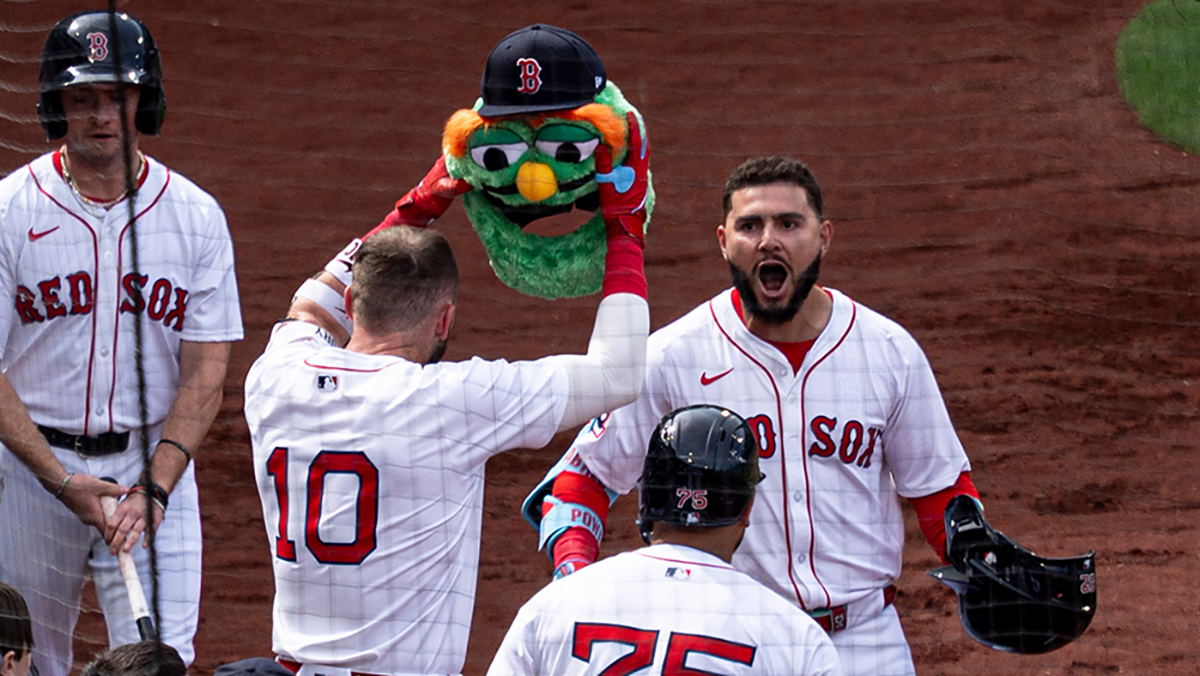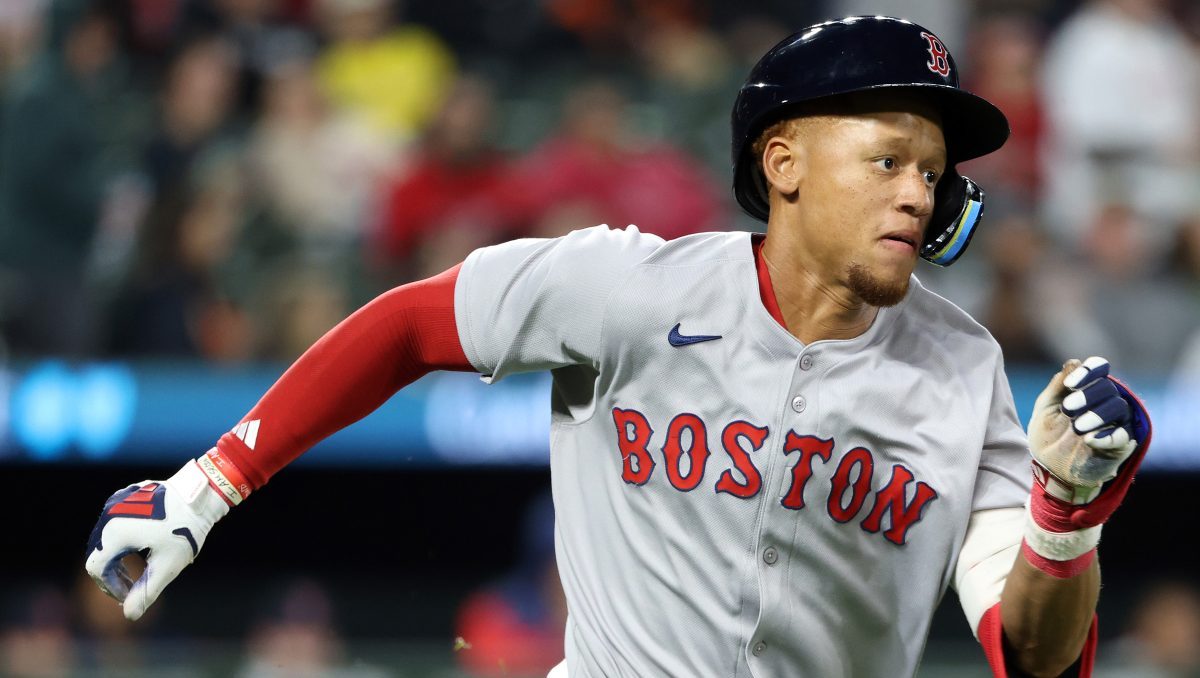The idea of Mookie Betts rejoining the Red Sox in free agency was always laughable.
The Red Sox traded him because they believed they couldn't afford him, and with good reason: Betts had already turned down an extension in the neighborhood of $300 million.
It never made a lick of sense that the sides would suddenly reunite in free agency once Betts could sell himself to the entire league. When the Red Sox traded him away, it was for good.
Get the latest news and analysis on all of your teams from NBC Sports Boston by downloading the My Teams App
We now know he's not even going to reach the market. ESPN's Jeff Passan reported on Wednesday that Betts has agreed to terms on a massive 12-year, $365 million extension with the Dodgers, topping Angels superstar Mike Trout's $360 million extension as the largest in MLB history.
This is actually good news for the Red Sox and more specifically, chief baseball officer Chaim Bloom, because it makes it that much easier to cut the cord with the past.
Bloom was hired to build something new after Dave Dombrowski maxed out the current nucleus with a historic World Series title in 2018, followed by a slump towards mediocrity last year.
And Bloom is the lens through which we should view not only the Betts decision, but also the future of former manager Alex Cora. While many expect that Cora will waltz back into his old job after interim manager Ron Roenicke completes this season, the primary impediment to his return now runs baseball operations.
Bloom's not interested in fanning the embers of the old nucleus in the hopes of catching just one more spark. He's here to construct a new team with a new focus on internally developed pitching, smart free agent decisions, and perhaps a high volume of trades, befitting his time in small-market Tampa.
Boston Red Sox
Find the latest Boston Red Sox news, highlights, analysis and more with NBC Sports Boston.
He doesn't need to be encumbered by the past, and that's what both Betts and Cora represent, pivotal as each may have been to the last championship.
No one wanted to see a repeat of the Jon Lester negotiations six years ago, when the Red Sox traded their ace left-hander at the 2014 trade deadline and then spent the next few months flirting with the idea of bringing him back.
They never made an offer that could compete with the six years and $155 million he got from the Cubs before helping Chicago end its own title drought in 2016. They had no intention of paying Lester his worth, topping out at about $135 million, but they wasted a lot of everyone's time making fans believe in a possible reunion.
That dalliance has colored every bad pitching contract since, from David Price to Nathan Eovaldi to Chris Sale.
"Why didn't we just keep Lestah?" fans bemoan.
Now that possibility is gone for Betts. He's never going to reach free agency, which means Bloom won't have to pretend to show interest. He can instead focus on a lengthy rebuild without a win-now contract on the books. He has already said goodbye to Price and Rick Porcello, and Gold Glove center fielder Jackie Bradley Jr. will probably join them after the season by leaving in free agency.
Similarly, Bloom will be free to hire his own manager, someone he can partner with as the Red Sox move forward.
Bloom, after all, was part of the group that tabbed former Red Sox catcher Kevin Cash to manage in Tampa, and all he has done since is establish himself as one of the most creative young minds in the game, with consecutive third place finishes in the Manager of the Year voting.
We should trust that Bloom can find that type of manager again. Rehiring Cora would be looking back to the way things were done in 2018 and 2019, and Bloom has every right to look forward.
So don't bemoan the sight of Mookie Betts in Dodger Blue. He was never coming back to Boston, because both sides had already moved on.
Now everyone gets a fresh start — most importantly, Chaim Bloom.


